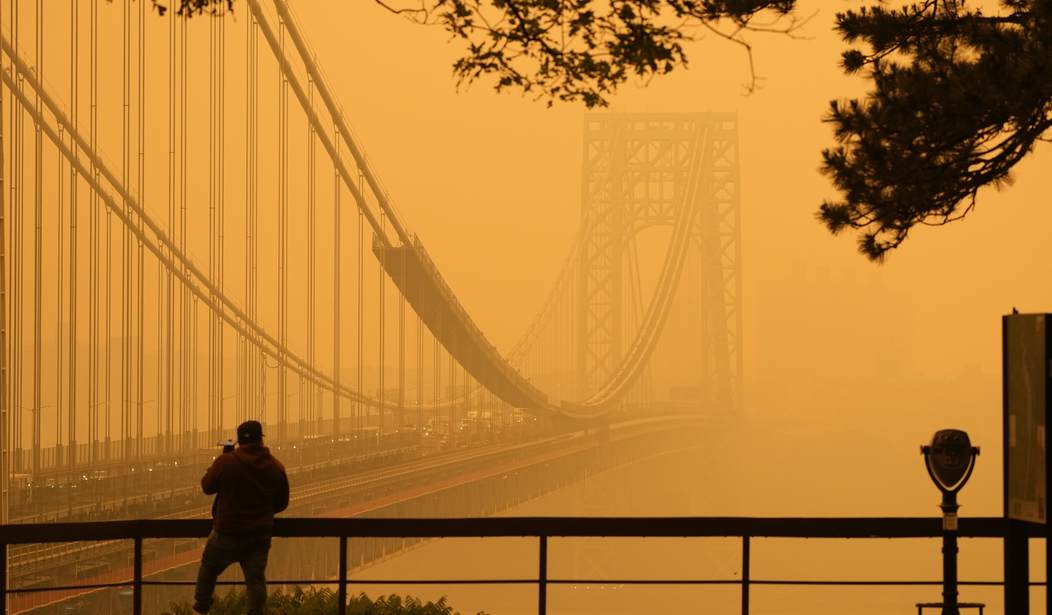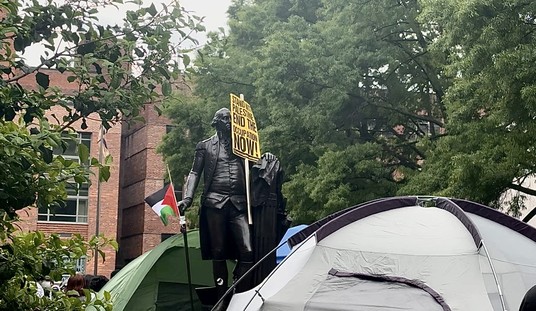It’s June 8 in my city of Toronto and all is not well. Once again, the air is befouled, not with viruses this time but with smoke from wildfires in Northern Ontario and Quebec. By noon, the air quality reaches 7 on the AQHI scale—considered “high risk.” In New York City it’s even worse: the concentration of noxious particulates in the air surpasses the safe threshold by a factor of more than 10.
On CBC News, a pundit warns viewers that spending the day outdoors is like smoking 7 to 10 cigarettes, and the situation could persist for several days. The TV anchor shakes her head at the “awful” analogy. True to form, the Toronto Star runs an article titled “There are dangerous particles in the smoke we’re breathing: ‘It doesn’t seem like any part of the body is safe’.” Our schoolboard moves recess indoors. We’re told to consult our doctor, the local health authorities, and the national AQHI website for updates. And, of course, to mask up.
After three years of media doom-mongering about Covid, these new alarm signals fail to engage my fear circuits. It’s the well-known mechanism of habituation: if you repeatedly expose someone to the same stimulus, the reaction gets weaker each time. It’s true for ducks and it’s true for humans. There’s nothing unscientific about it: au contraire, the habituation response grows straight out of our DNA.
The past three years have also eroded my patience with worst-case thinking. Also known as the precautionary principle, worst-case thinking makes some sense for dealing with completely novel phenomena (like, say, a UFO landing in Disneyworld) and for a very limited period of time. But wildfires and wildfire smoke are not novel. We have some idea how they’ll unfold, how they’ll affect air quality, and for how long.
Recommended
The smoke blowing through my city doesn’t meet my bar for “awful.” What’s awful is having a wildfire burn down your house or kill your cattle—or worse—not a few days of poor-quality air. I understand that people with weaker lungs may wish to stay indoors to avoid exposure to particulates, and I’m fully on board with beefing up our infrastructure to better manage wildfires. Just drop the fear-mongering, please. If the CBC expert’s estimates are correct, I’ll be smoking about 40 cigarettes over the next few days. In the grand scheme of things, this represents a paltry risk.
I get an email from a cousin on the Bernie Bro end of the political spectrum, warning everyone in the family to wear an N95 mask when stepping out of the house. But a 2019 SFGate article about preparing for wildfire season says something quite different: if you choose to wear a mask, “the likelihood of it doing more harm than good is high.” Later in the article, a spokesperson for the Bay Area Air Quality Management District explains that properly sealed masks are “hot and uncomfortable to wear and breathing is strenuous… they make the heart and lungs work harder and can cause respiratory distress for people with breathing conditions.”
Well, well. For the past three years, anyone who suggested that masks make breathing more difficult was told to stop killing grannies. The article reminds me that it wasn’t always this way: before Covid politicized masks, even left-leaning news outlets like SFGate saw fit to point out their downsides.
In the early evening I take my paddleboard out on Lake Ontario and spend two glorious hours gliding across the lake’s glassy surface, AQHI index be damned. My cousin would not approve. Perhaps I’m being churlish, but his concern strikes me as performative. As a Very Progressive Person, he has no choice but to declare all threats to safety “unacceptable” and to warn people against taking any risks. The past three years have baked these lines into the far-left script.
But here’s the thing: there’s nothing unscientific or unreasonable about paddling on a giant lake as the sky turns orange, even if the air quality is less than great. It’s not “burying one’s head in the sand,” as some members of the far left would have us believe. It’s a rational cost-benefit analysis that lands on the benefit side.
H.L. Mencken defined puritanism as “the haunting fear that someone, somewhere, may be happy,” and this is what I sense behind the “progressive” impulse to warn people about the latest monster under the bed. There’s a certain type of Leftie who considers it unseemly to have any fun until the world is scrubbed of all risk. But tolerating some risk is what gets us to the good stuff in life—and at age 66 I’m hungrier than ever for the good stuff, even if I cough a few times along the way.
Gabrielle Bauer is an award-winning Toronto writer and author of the pandemic book Blindsight Is 2020.
























Join the conversation as a VIP Member